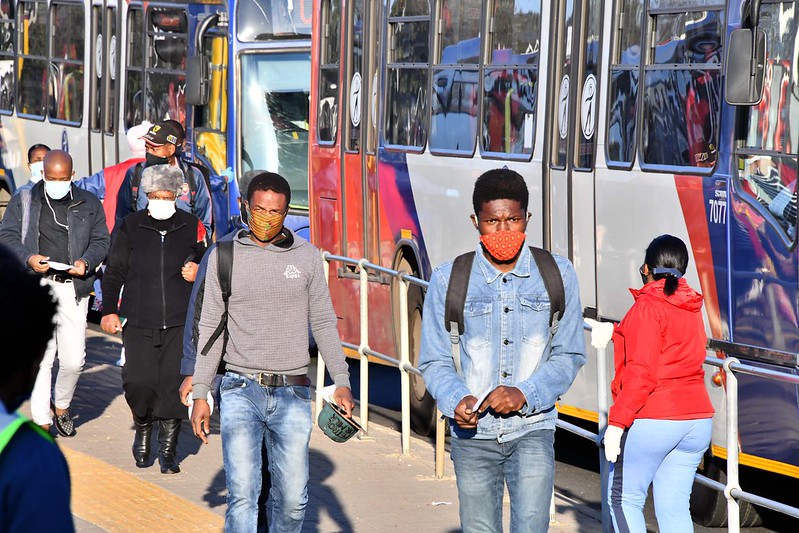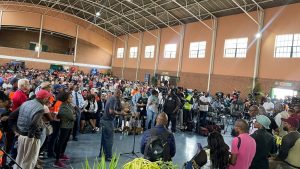Gauteng Transport MEC Jacob Mamabolo says it’s not a far-fetched idea and won’t be difficult to implement. He says the Gautrain already uses an electronic ticketing system.
“Gautrain has even taken a step further, you can take the Gautrain using your credit card, using your bank card to be able to pay, it’s no longer just electronic card, you can use your normal banking cards to pay for Gautrain. So it means the capacity is there, I know that municipalities also have cards for their bus services, and BRTs, so the systems are there, are in place.”
“The single ticketing system for public transport in Gauteng is created to benefit commuters. The system will enable commuters to seamlessly move from one mode of transport to another” MEC @GPDRT_ @JacobMamaboloSA #GPPOSTSOPA #GrowingGautengTogether pic.twitter.com/V6QNXniiqi
— GautengGov (@GautengProvince) March 12, 2020
Taxi industry
Mamabolo says because they’re not starting from scratch – integrating the different systems won’t be difficult. But, he says the cash-based taxi industry poses a challenge.
“We have to make sure that we clean the data of the taxi industry, a process that we will be starting with end of September. We will be starting by making sure that we stabilize the data and information of the Gauteng taxi industry, and bring in automation into the taxi industry, and be able to know beyond any shadow of a doubt, who is supposed to operate a taxi in the province.”
Mamabolo believes that by replacing the cash-based system and the physical movement of money, they could also curb taxi violence. The taxi industry tends to have a hostile relationship with government, the most recent standoff being over loading capacity during lockdown. However, Mamabolo says the two big taxi alliances in the province are fully on-board this time around.
Spokesperson for the National Taxi Alliance – Theo Malele – says that at a summit last year, they had given the green light to formalising the taxi industry.
“The one thing that stood clear was that we were prepared to modernise, we were prepared to make sure that taxi violence is nipped in the bud and we had also requested that certain pieces of legislation be repelled in order for the taxi industry to play a meaningful role in the public transport sector. We are fully behind Jacob Mamabolo as an industry.”
The immediate focus of the Transport Authority is to give life to all the transport plans developed over the last decade. These include introducing a single-ticketing system between buses, taxis and trains and improving intermodal facilities. #GPSOPA2020
— Gauteng ANC (@GautengANC) February 25, 2020
‘Won’t be achieved overnight’
Prof Jackie Walters of the Department of Transport and Logistics Studies at the University of Johannesburg says an integrated public transport system won’t be achieved overnight.
“This is a very good idea for Gauteng to look at one system that services the needs of the people of this region, across municipal borders and to have a much more functional system than the one we have at this time. I think within the next five to 10 years, we may be able to have maybe a 70-percent integrated transport system in this region. It’s not going to happen overnight. It’s gonna take a lot of hard work to get all the players on board.”
Mamabolo says the COVID-19 pandemic has disrupted their plans.
“We’re now advertising and constituting the board, and of course we should go through an appointment process. By the end of this year we should be able to put a proper board in place, and I can tell you that we will make a good announcement with the premier’s speech in February, we’ll be able to give you an exact date of when do we expect the full integration to happen.”
Mambolo says that in the meantime – pilot projects will be rolled out and be steered by the interim board that’s in place.
@DoTransport will assess all options with a view to introduce an integrated single ticketing system for all gov-subsidised public transport operators. This is aimed to improve efficiencies in the public transport space & also enhance accessibility #OTM2019 @MbalulaFikile pic.twitter.com/D0iR6mVtL3
— Department of Transport (@Dotransport) October 10, 2019






